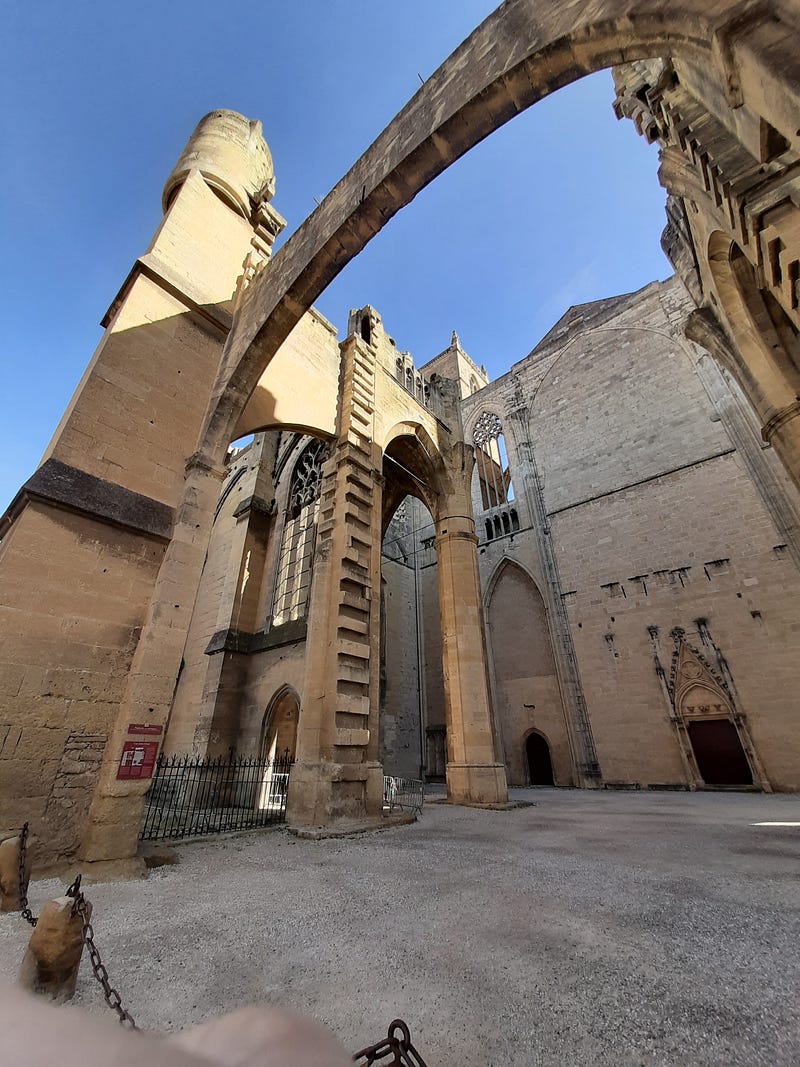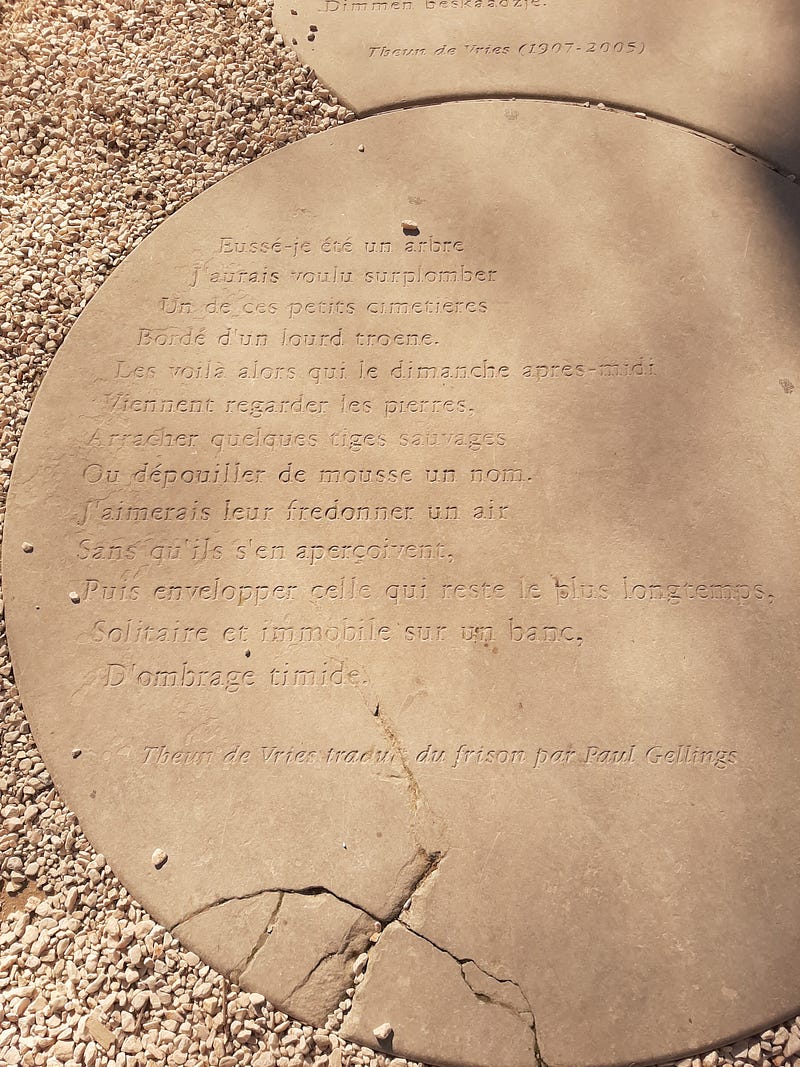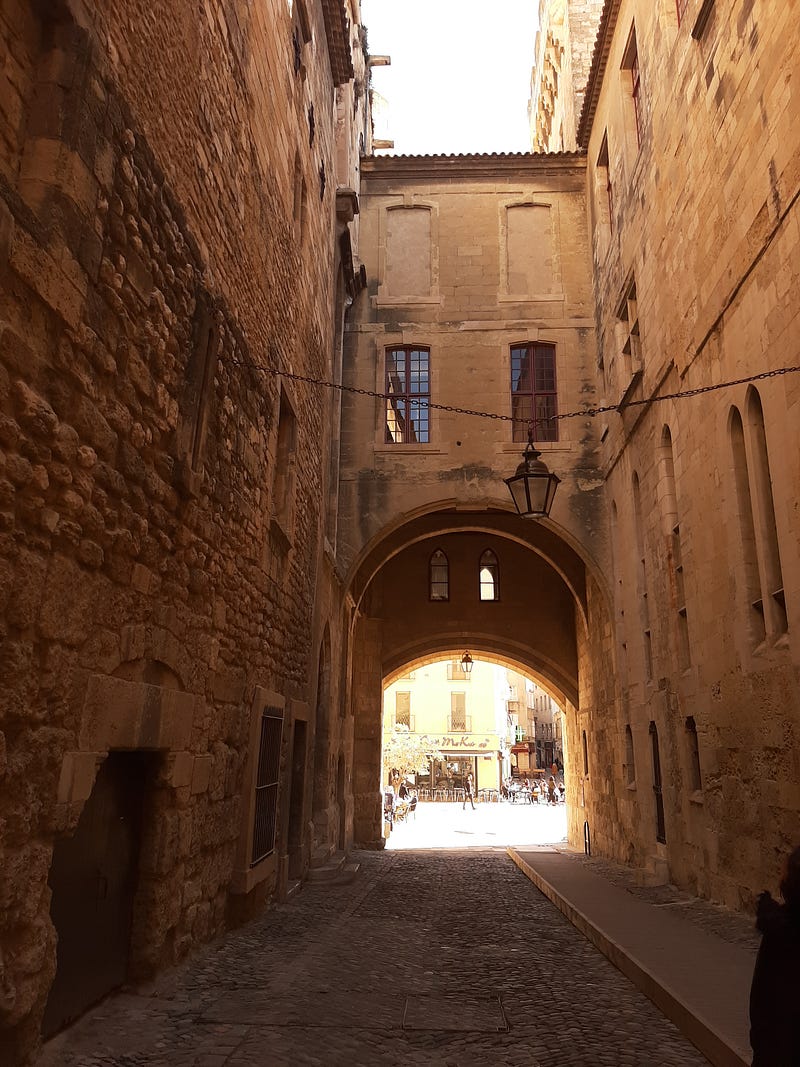Leave Your Camera Behind: Embracing Experience Over Vanity
Written on
Chapter 1: Discovering Narbonne
A little over a year ago, I found myself in Narbonne, a picturesque coastal town in the south of France, located about sixty miles from Spain. Established in 118 BC, it was once a settlement for retired Roman soldiers. The town later came under Moorish control before being taken over by a Jewish principality that thrived through the Middle Ages.
Inside the cathedral, which began construction in the thirteenth century but remains unfinished, I felt a wave of anxiety. I observed a stylish couple exploring the space, the woman’s high heel precariously tilting as she whispered to her partner in elegant French. Her shoes, worn and battered, bore soles as crimson as the blood of a pope.
I want to clarify that I am not against vanity; presenting oneself well in public is as much about etiquette as it is about personal expression—even if I have yet to master that art myself. I genuinely admire those who make an effort to look their best, though I can’t help but feel a twinge of sympathy for the risk of rolled ankles. My wife, however, opts for sneakers.
In the ancient cloister, an azure sky peeked through the medieval spires. A young man lounged on a low wall, half-shaven and gazing dreamily into the distance while his girlfriend snapped a photo. After reviewing the image, he shook his head and struck a different pose for another shot.
I must confess, I find it somewhat more acceptable for women to indulge in physical vanity than men. Women, after all, often endure discomfort for the sake of beauty. Perhaps this inclination ties back to my lingering Catholic roots that admire the sacrifices made for aesthetic appeal.
I commend the bravery it takes to navigate cobblestone streets in high heels. Anyone can throw on some distressed jeans and sneakers and strike a pose. It’s easy to mock the scene.
When visiting any beach worldwide, you will spot the Instagram boyfriends, phones in hand, documenting their self-absorbed partners. In a different era, women sought husbands who owned land and had a gentle disposition. My grandfather attracted my grandmother’s attention by outlifting all the other factory workers.
On our first meeting, my wife was enchanted by my accent, while I admired her figure. Ah, tres, tres chauvin!
However, it seems that modern women might soon be seeking partners not just for companionship but for their photographic skills—someone who understands lighting and timing and can capture their essence as well as their outfits. Relationships may evolve into performances.
Maybe I’m old-fashioned, clinging to ideals from a bygone era. If the preening young man in the cathedral’s cloisters represents today’s youth, it appears that boys now crave their moment in the spotlight as well.
Every photograph we take can create a barrier between us and the world. Capturing an experience often detracts from truly living it. The viewfinder or phone screen can pull you out of the moment, projecting your own shadow into the future, looking back on the present from a distant and unclear perspective. This sensation can evoke a kind of vertigo, a dizzying effect caused not by space but by time.
We chase authenticity in our experiences, only to document them exhaustively with flashing cameras and boastful blog posts—and, alas, even books.
“Pleasure takes us away from ourselves in the same way as distraction, in Pascal’s use of the word, takes us away from God. Travel, which is like a greater and a graver science, brings us back to ourselves.” — Albert Camus
Travel is a joy for me, despite the scowling airport staff and the discomforts of cramped flights. Yet, Camus was right about how travel reconnects us with our true selves. When stripped of our daily routines and familiar environments, we are left with our essential selves, free from the roles we usually play.
A new location sheds the layers of our lives like wallpaper removed under steam and a scraping tool. It reveals hidden treasures, much like ancient frescoes tucked away in a budget hotel that once served as a Renaissance palace.
With our senses heightened, we observe everything—the crooked wing of a pigeon in the square, the worn-down heel of a shoe, and the vibrant pink blossoms blooming in February along the banks of a murky canal.
“This is the most obvious benefit of travel. At that moment we are feverish but also porous, so that the slightest touch makes us quiver to the depths of our being. We come across a cascade of light, and there is eternity.” — Albert Camus
We carry our electronic connections with us everywhere, the shiny screens reflecting our lives in airports, train compartments, cathedrals, and cloisters.





Chapter 2: The Illusion of Perfect Moments
In the park’s open sky, we often overlook the poetry etched into the flagstones beneath our feet. We travel with a burden, carrying the weight of our curated identities that separate us from genuine experiences. It’s not self-obsession; it’s a fixation on constructed personas, a lingering brand that follows us relentlessly.
It’s easy to critique today’s youth, particularly the Gen Zers who refuse to venture anywhere that lacks a picturesque backdrop for their social media feeds. Yet, everyone has their own ideas of what travel should look like.
Let’s not blame the younger generation. If the technology had been available when we were young, we would likely have engaged in similar behaviors. Many of us still do, instinctively reaching for our phones at the sight of anything remotely interesting. If it’s not documented, there’s a nagging feeling it didn’t truly happen.
Whether your memories are captured through dozens of artfully staged selfies or detailed, flowery prose, the outcome remains the same. We strive to preserve moments, even as we know that true moments are ephemeral. Their fleeting nature is what makes them precious.
Away from our screens, travel provides a tangible way to experience what mystics have long sought—a sudden and profound connection with eternity, akin to Camus’ quiver or Dickinson’s ecstatic revelations.
This essence defines not just travel, but life itself.
I had to look up the quotes.
These thoughts, however, flitted through my mind as I transitioned from the dimness of the cathedral to the bright sunshine of a walled garden. We often judge based on first impressions, an evolutionary survival mechanism that keeps us from engaging with potentially dangerous creatures. Perhaps we should set aside our phones more often while traveling—and our judgments as well.
Nearby, the young couple had swapped roles; now, the girl was posing with her chin lifted and stomach in, while her boyfriend snapped the photos. In my comfortable shoes, I approached them and offered to capture a shot of the two together. They readily accepted.
A photograph might not encapsulate the full experience. It may act as a barrier between us and the world, yet it also serves as a portal. It captures a fleeting moment that can never replicate reality, but it is certainly better than nothing.
Travel teaches us that perfection is not a prerequisite for enjoyment. Sometimes, what is merely adequate can surpass expectations.
© Ryan Frawley 2021.
All proceeds from this article will be donated to Doctors Without Borders/Medecins Sans Frontiers.